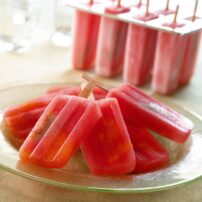
On many a sunny, misty or downright rainy day in Kitsap County, you can see a group of kindred spirits bent over a Master Gardener (MG) demonstration garden — planting, weeding, irrigating and harvesting. They are carrying on a rich tradition of outreach education and service that are hallmarks of the Extension Service in the United States.
You’ve read about the WSU Kitsap Extension MG program in the pages of this publication. Did you know that last year, MG volunteers contributed nearly 16,000 hours of volunteer time, answered horticultural questions for more than 4,000 Kitsap citizens and taught more than 1,000 youth sound gardening practices? They also produced and donated more than 5,000 pounds of organically grown fruits and vegetables to local food banks.
The MG program is only one aspect of outreach education provided by WSU Kitsap Extension. Here’s a bit of history.
On May 8 the National Cooperative Extension Service celebrated the 100th anniversary of the passage of the Smith-Lever Act, which was approved by the U.S. Congress in 1914. This act established the Cooperative Extension Service in the United States. In 1917 Cooperative Extension programming arrived in Kitsap County — a result of the partnership among the county, the federal government and Washington State University.
C.B. Sprague was our first “agent.” The county population at the time was 28,000. Our current programming has deep roots from the educators and their trained local volunteers who served in WSU Kitsap County Extension since 1917.
Current Programs
4-H Youth Development, under the leadership of Shannon Harkness and with the support of 280 volunteers, provides positive experiences for Kitsap County youth. In addition to leadership development and traditional clubs, 4-H teaches skills in science, technology, engineering and math.
More than 600 youth are currently enrolled in 59 clubs and more than 4,000 Kitsap youth participated in nontraditional education (e.g. after-school programming) last year. A study conducted by Tufts University showed that youth who participated in 4-H were less likely to abuse drugs and alcohol and engage in risky behaviors, more likely to be physically active, two times more likely to go to college and three times more likely to contribute to their communities.
Renee Johnson provides leadership for Water Stewardship Programs, offering education and service opportunities for citizens who complete courses to become beach naturalists, stream stewards, salmon docents and native-plant advisers. Each program provides 50 or more hours of education, followed by a volunteer time commitment, similar to the WSU Master Gardener Program.
Johnson also provides education and information for private citizens who wish to take a pledge for clean waters in Kitsap County and become shore stewards. Shore stewards receive periodic newsletters on clean water and stewardship for their own properties and neighborhoods.
Last year, WSU stewardship volunteers led 250 citizens and more than 1,000 youth on explorations, classroom visits and field trips. They assisted in providing the latest scientific information on conserving healthy streams, proper beach etiquette and protecting and conserving natural resources.
Stream stewards and native-plant advisers participate in monthly work parties in parks and conservation areas throughout the county, assisting in removing noxious weeds and planting native vegetation to purify ground water and also bind up toxins that could drain into fresh and salt water bodies.
Partners in WSU Extension Water Stewardship Programs include Jeff Adams (Washington Sea Grant), Clean Water Kitsap (which includes staff and volunteers from Kitsap Public Works, Kitsap Conservation District, Kitsap Public Health) and staff from incorporated and unincorporated areas of Kitsap County. In 2013 volunteers restored 207 acres of riparian habitat and more than 500 people benefited from attending salmon tours at Chico Creek and Poulsbo’s Fish Park.
In the Strengthening Families Program, families with youth ages 10-14 engage in educational and fun activities that lead to improved communication, family harmony and positive parenting of young teens. Youth who complete the program with their families show a later initiation age and lower use and abuse of alcohol and drugs. The longer that youth delay initiation, the less likely they are to engage in lifetime abuse of substances.
A more recent study by the Pennsylvania State University’s Prevention Research Center estimated a benefit per family of $6,541. The study calculated benefits in terms of criminal justice costs related to alcohol abuse such as prevented arrest, incarceration, adjudication, victims’ costs, future earnings, tax revenue and decreased public assistance. Based on this benefit, over $350,000 was saved in Kitsap County in 2013.
Today, WSU Kitsap Extension is a network of educators who extend university-based research and knowledge to the people. In Kitsap County the partnership that the Smith-Lever Act created has engaged people, organizations and communities to advance knowledge, economic well-being and quality of life by fostering inquiry, learning and the application of research.
If you’d like to gain education around horticulture, youth development, water stewardship, food preservation, rain gardens, nutrition education, small farms support or strengthening families, please visit the WSU Kitsap Extension website at ext100.wsu.edu/kitsap.






















Comments